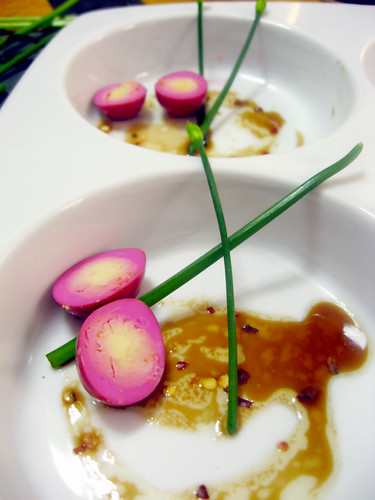
Pickled quails eggs, as garnish for the appetizer course from our Polynesian Meal.
Tiny things are always so precious. You could fit 3 or 4 quails egg inside the shell of an average chicken's so of course, its hard not to adore them. Don't judge them by their size though, although small, once cooked, these eggs are surprisingly tough. Their egg whites are not as soft as their larger counterparts which gives for a surprising texture when bursting into the center and finding a soft, delicate yolk. They are a bit exotic in our culture, but quite common in various Asian cuisines, so are not impossible to find pickled if not fresh in Chinese, Korean or Thai grocery stores.

So lets pull out our cauldron, and with a little of toil, toil, boil and bubble, we'll mix together 1 part exotic, to two parts precious, a pinch of ol' timey, and a bit of beet blood for pizzaz and we'll concoct the perfect pickled quails eggs!
(oh come on, I don't mean blood- its beet juice. Sheesh!)
PICKLED QUAIL EGGS
- 3 dozen fresh Quail eggs, or 2 cans of preserved eggs*
- 4-5 medium sized beets, washed and quartered
- 2 c. vinegar (white wine, cider, rice, or any mixture of these)
- 1/2 c. sugar
- 1 tsp. salt
- bay leaves
- black peppercorn
- whole cloves
- fresh mint
- 1 clean quart jar with lid
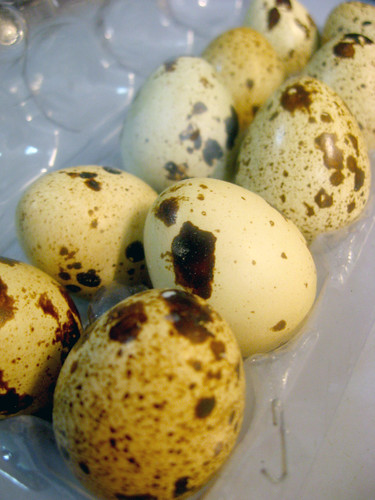
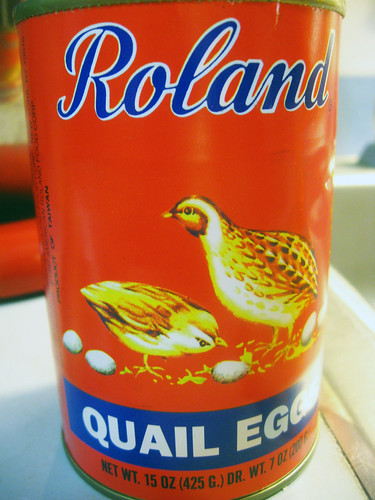
* I suggest getting fresh, as the canned eggs are a bit rubbery. However, the longer fresh eggs sit in a brine, the more they will become a bit rubbery as well. They are best eaten within two weeks. However if you plan to store yours for a while, it doesn't matter if you start out with canned or fresh.
Make beet juice. We'll add beet juice to the brine to give added flavor but most importantly a nice purple color. Clean and wash your beets. You don't have to skin them if you don't want just get all the yuck off. Quarter and place in a pot with water covering about 1" above beets. Cover, bring to a boil and then reduce to a simmer. Allow to cook for about 30 minutes, until you see dark red liquid. Drain and reserve 2 c. of juice for your brine.

While beets are cooking, we'll prepare the eggs. If you're using canned eggs, you can skip to step 4. If using fresh eggs, we'll need to hard boil them. Place a cloth napkin or towel at the bottom of a pot, place the fresh eggs on the cloth and fill the pot with water. Place the pot on a the stove. Cover and bring to a rolling boil. Once boiling, remove the pot from heat. Let sit for 5 minutes with pot still covered. While its sitting, prepare a bowl of ice water. Take eggs from hot water, and place into the ice water until they cool. This will make peeling them easier. Because they are so small, its easy to damage them while peeling. Peel eggs and set aside.

Create your brine. In your cualdron, I mean in a pot, mix all ingredients, including the beet blood, ahem...juice, but excluding the eye of newt. Ok, joke taken too far now! Excluding the eggs, put everying into a pot and bring to a boil. If you have a pickling spice mix, feel free to use that instead of the whole spices I listed above. Once the brine is boiling, remove from heat.

Assemble your jar of pickles. Place your eggs in your quart jar. Pour the hot brine over the eggs, whole spices and all. Fill jar with as much of the brine as possible, place lid on jar and allow to sit. Once cool, you can add in some fresh mint if you want and place in the refridgerator.

Your pickled eggs will be at full potency in about a week and will remain good indefinitely if kept chilled.


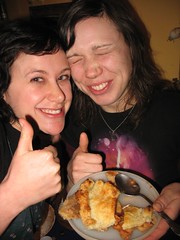
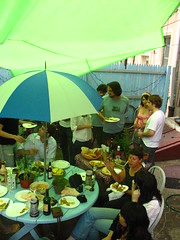
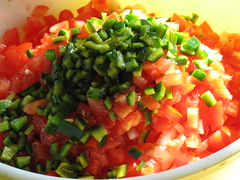

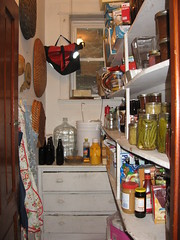




4 comments:
I love pickled eggs. When ever I hang out with the NorOns (Northern Ontario) I pick up a few jars of Strubbs (much better than the polish brands you can find at the mega-marts here). I haven't yet made my own, but may try. Can this be adapted to chicken eggs? I wouldn't see why not, but I have never tried a Quail egg, so I don't know if this brine is made to compliment a non-chicken like egg taste.
In my experience, a quail egg tastes much like a chicken egg. The difference is size (obviously) and the texture once hard boiled. If there is a difference in taste, it is too subtle for me, especially once brined.
Answer: DO IT TO THE CHICKEN EGGS!!
I love that you used beet juice in so many of your recipes! The color is beet-utiful!
Nice blog you got here. It would be great to read more concerning this topic. Thanx for posting that information.
Sexy Lady
Girls for companionship in London
Post a Comment